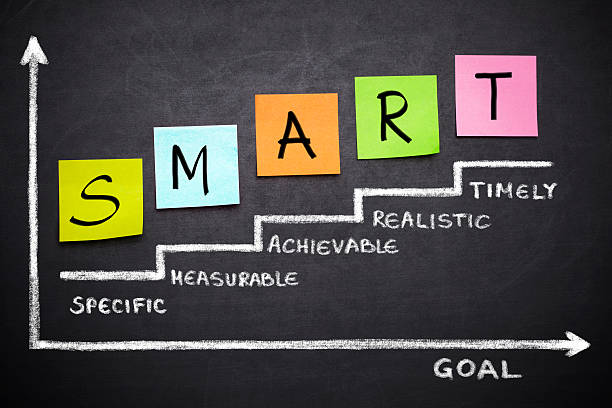
SMART Goals, circa 1981. Gold standard, right?
I’ve felt this way for a long time, and recently a lot of other people are finally starting to speak up. Namely, James Clear, Behavioral Scientist and author of “Atomic Habits.”
When I first heard Clear speak about his theory of habits over goals, I sighed. I literally sighed a breath that I think I had been holding for years.
SMART Goals were made up for an article in 1981, and people ran with it. I think, in part, because that theory felt practical and tangible. And in part because then coaches could say they were siding with something called “SMART.”
But I never felt SMART trying to use SMART goals. I felt like a loser.
I would talk to my coach or mentor about something I wanted to achieve. Usually, she would say “you’re thinking too small. Think bigger. Find an audacious goal.” And that, my friend, is thanks to Grant Cardone and his “10X Rule,” which coaches and mentors also latched onto. “If you can think it, you can do it, so why not go big?” Well, and they also said “Go big or go home.”
In my case, I went home. All the time.
As a kid, I achieved lots of things. Straight A’s, first chairs, high school drum major. I didn’t use SMART goals. I used habits. What will it take to make good grades? Study and do the projects. OK. What will it take to do well on the chair test? Practice your material every day. Ok. What will it take to be drum major? Wave my arms around and count to 4 A LOT. Ok.
But in adulthood, the goals got audacious and the method became SMART. When I didn’t achieve something that was completely out of my control anyway, like a position at work or a number of engaged readers, I would not go back and redirect my habits. No. I would throw myself into a tailspin. I made the goals. I thought I did the things. The results didn’t reach the goal set. So it must be me. I’m the weak link.
Only I don’t think I was actually the weak link here. I think I was misguided.
I dropped SMART goals a couple of years ago, recognizing that my behavior patterns were not positive at the end of each timeline I had set for each goal. Each timeline end was met with self loathing and terrible self talk. I would have to pick myself up off the floor, put myself together, and find some scrap of strength to do the next thing.
Once I let that go and focused on my habits, I could see where I was going, what I was doing, and what I could control vs. What I couldn’t. I can only control me. I can’t control other people. So my making goals that were determined on the behavior of others was ridiculous anyway.
My habits are strong; I always focus on my physical, mental, and spiritual health, with specific practices, every day. I learn every day. I communicate every day. I write something every day. I create something every day. I spend time with my closest people every day. I listen to them every day. I do something to advance my skills for my career every day.
When I need a timeline, it’s not about SMART goals. It’s about the end vision or event, and then reverse engineering that to come up with the tasks necessary to make that happen. And I do each task, sometimes several times over, without self judgement. More about “how can I do this better?” Something is up to someone else? Communicate it clearly, check in, ask questions, make sure I am taking accountability for my part, and then let it go.
Those things I can do. I’m no longer picking myself up off the floor. I’m no longer sending myself into a tailspin. I’m no longer thinking I am supposed to do God’s job for Her (that’s another issue altogether). And I feel so much better.
SMART Goals are so 1981.